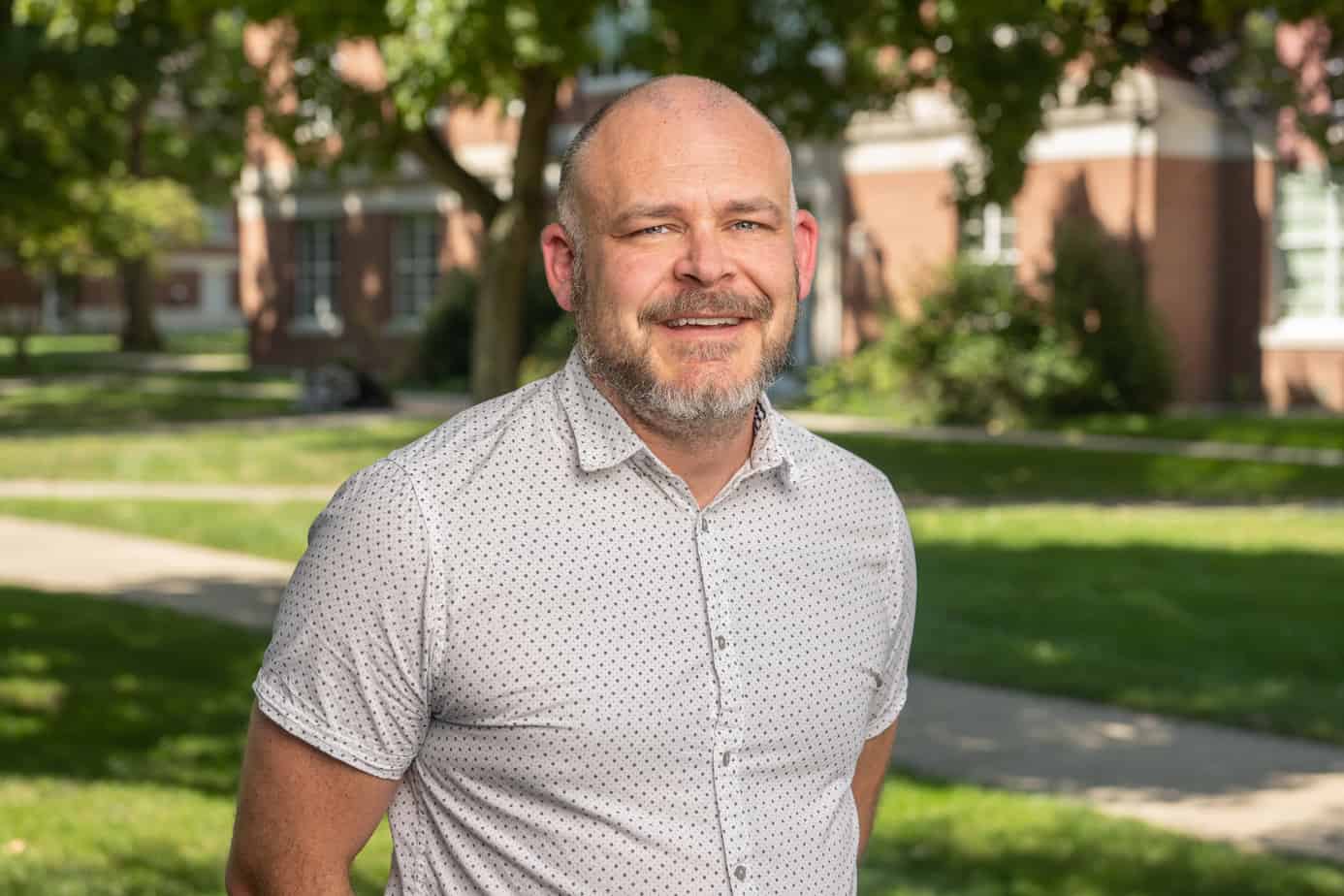“As a professor, I pride myself on designing engaging activities and discussions that are accessible and culturally relevant; the more I can help students learn how dynamic and diverse the practice of religion is around the world, the better suited they will be to understand and collaborate with people from a variety of cultural backgrounds in their throughout their life.”
Title
Department Chair; Assistant Professor of Philosophy & Religion
Educational Background
- M.T.S., Vanderbilt Divinity School – Nashville, TN
- B.A., Franklin College – Franklin, IN
Year Joined Franklin
2010
Expertise
world religions, religion and the environment, religious giving, philanthropic studies, disability theology, and ritual studies
I also teach courses on the philosophy of religion, nonprofits, Christian theology of the 20th century, religion in American history, East Asian religious traditions, and the intersection of religion and popular culture (i.e. REL 300, Religion and Star Wars!)
Why is the study of religions important, especially if someone isn’t religious?
Religious studies is usually misunderstood as series of college-level Bible classes. Instead, religious studies is the investigation of the beliefs and spiritual practices of individuals all over the world. In order to tackle the harmful stereotypes of religious minorities, it’s important for everyone to have some working knowledge of other religious traditions. The study of religions is a way to better understand humanity in all of its diversity, as well as a way to understand and appreciate neighbors in our local communities, and neighbors in our international community. You certainly don’t need to be a person of faith to study religion, only a curious student.
Do students with degrees in religious studies get jobs after graduation? If so, in what?
Yes! According to a recent survey by the American Academy of Religion, over 80% of graduates with a degree in religious studies are employed, and in a variety of fields. Contrary to what some students and families might think, individuals with degrees in religious studies can thrive in a variety of professional settings, because of their ability to think critically, understand people from diverse backgrounds, and consider multiple points of view. religious studies graduates from FC have gone into K-12 education, business and finance, the medical field, serving in public libraries, ordained ministry, and much more. A little more than 1/3 of our graduates serve their communities by working in nonprofit organizations. In fact, students interested in the study of religion and professionally serving their communities (or working for a nonprofit overseas) after college can graduate with a degree in religion and nonprofits from Franklin College.
Selected Professional Accomplishments
Awards
2017- Franklin College Adjunct Faculty Award for Excellence in Teaching
2016- Franklin College Academic Adviser of the Year Award
Publications
Alexander, James [Review of the Book: The paradox of generosity: Giving we receive, grasping we lose by Smith, C., & Davidson, H.]. Nonprofit and Voluntary Sector Quarterly, 0899764015595637, first published on July 23, 2015
Conference Papers and Presentations
Alexander, Jim “The Gift of Dwelling and Emerging Franciscan Piety”
3rd Annual Ways of Knowing on Religion, Harvard University, October 2014
In My Spare Time…
I enjoy playing with my kids, especially when we are engaged in creative activities like drawing, telling stories, building things. I am (and will always be) a comic book nerd and an expert on Batman, so I love educating my kids on those elements of pop culture, especially strong female comic book characters. My family and I also love spending time outdoors, and we love hiking. Two of my life goals are to hike the Appalachian Trail and the Camino de Santiago with my family!
